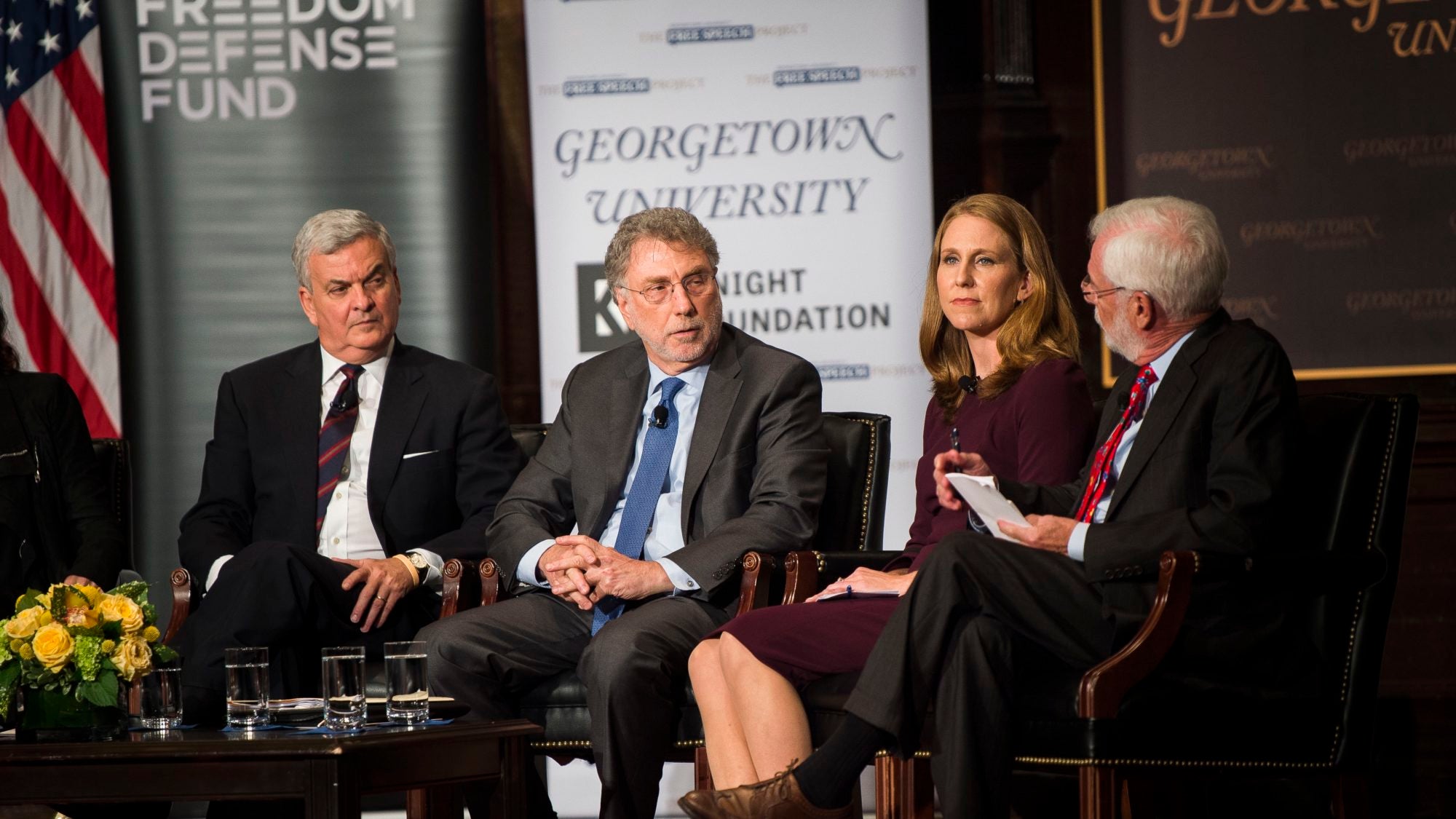The panelists started by emphasizing, with relief, how the Trump Administration’s rhetoric on leakers and whistleblowers has diverged significantly from the reality of the current situation. Baron pointed out that, in fact, the Obama White House made use of the Espionage Act to punish leakers with more regularity than any prior government. However, Cordero cautioned that rhetoric remains a powerful tool; President Trump’s words and tendency to justify policy on somewhat spurious grounds of “national security” should make any potential leaker or journalist nervous about the possibility of prosecution. Baron summarized the trajectory of press freedoms that “with each subsequent administration, there is an erosion of protections for the press.”
A further theme of the event was the technological context in which these interactions between government officials, whistleblowers, and journalist are carried out. Poitras and Cordero both laid out how much has changed in recent years. Poitras, providing the viewpoint of a journalist, highlighted how new technology requires those in her field to be experts in digital security to avoid becoming a target of the government seeking to unveil a whistleblowing source. Cordero stated that there has been an uptick in leaks, both in number and scope: today, someone can leave a government building with a flash drive containing one and a half million documents, rather than concealing a few papers in a briefcase, she reported. From a national security standpoint, this makes leaks far more dangerous. Jaffer, however, argued that the government’s tendency to excessively classify information increases the value and importance of having whistleblowers able to spread information the public deserves to know.
At the end of the panel discussion the floor was opened to questions from the audience, during which one freshman in the college closed the event asking to what degree she should put faith in the government, querying whether she should trust it or maintain a relationship, which is “at the best of times cautious and at the worst of times adversarial.” Applause and laughter followed.
The event was hosted by the Georgetown Free Speech Project, and sponsored by the Knight First Amendment Institute at Columbia University, the Knight Foundation, and the Press Freedom Defense Fund.
